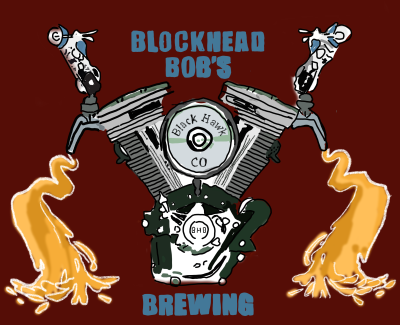Homebrew Recipe
Devil's Purse Brewing Co.'s Handline Kolsch Clone
- Method:
- All Grain
- Style:
- Kolsch
- Boil Time:
- 60 min.
- Batch Size:
- 5 gal.
- Boil Size:
- 6.5 gal.
- Efficiency:
- 65
- Rating:
- Source:
- Brew Your Own
- Source Notes:
- January-February 2020, Vol. 26, No. 1 page 17. Tips for success: One of the challenges for the all-grain brewer will be in water chemistry management. In the beginning, Devil's Purse used acidulated malt to help control the mash pH (pH = 5.3) but currently is using 88% food-grade lactic acid. This is important as the South Dennis water is soft so without adjustment, the mash pH will be far too high. If you also read into that last bit, you'll notice that the carbonates, residual alkalinity, and calcium concentrations are more than likely on the lower side of the spectrum. You may want to consider starting with RO and building up your brewing water profile or diluting your current profile with distilled water. Finally, in the end, this beer just takes patience, unless you have a centrifuge. Cold lagering for a month should provide you with the clarity and crispness you're looking for.
- Notes:
- Start with either soft water, reverse osmosis (RO) water, or distilled water. Mill the grains, then mix with strike water at a 1.25 qts./lb. water-to-grain ratio, or 3.1 gallons of 165F strike water to achieve a single infusion rest temperature of 148F. Adjust water with calcium salts and 88% lactic acid to stabilize mash pH at 5.3. Hold at this temperature for 60 minutes. Mashout to 170F if desired. Vorlauf until your runnings are clear before directing them to your boil kettle. Batch or fly sparge the mash and run-off to obtain 6.5 gallons of wort. Boil for 60 minutes, adding hops at the times indicated in the ingredients list. At 15 minutes left in the boil, you may want to add either Irish moss or Whirfloc as fining agents. After the boil, rapidly chill the wort to 65F then pitch a healthy amount of yeast, higher than your standard ale pitch rate. Maintain this temperature during active fermentation in order to prevent too much yeast character. Once primary fermentation is complete, and the beer has settled, you can bottle or keg the beer and carbonate to approximately 2.6 volumes. Alternatively, if you can, cold lager the beer for about one month.
Brew Numbers
| OG | FG | ABV | SRM | IBU |
|---|---|---|---|---|
| 1.048 | 1.009 | 5.1 | 4 | 20 |
Fermentables
| Name | Amount | % Grain Bill |
|---|---|---|
| Lager or Pilsner Malt | 7.25 lbs. | 72.50 |
| Vienna Malt | 2.75 lbs. | 27.50 |
| Total: | 10.00 lbs. |
Yeast
| Name | Lab | Product |
|---|---|---|
| German Ale II | White Labs | WLP003 |
| Kolsch | Wyeast | 2565 |
| SafAle | Fermentis | K-97 |
Mash Steps
| Step | Name | Temp | Time | Type |
|---|---|---|---|---|
| 1 | Single Infusion Mash | 148 | 60 | All Grain |
| Notes: mix with strike water at a 1.25 qts./lb. water-to-grain ratio, or 3.1 gallons of 165F strike water to achieve a single infusion rest temperature of 148F. Adjust water with calcium salts and 88% lactic acid to stabilize mash pH at 5.3. | ||||
